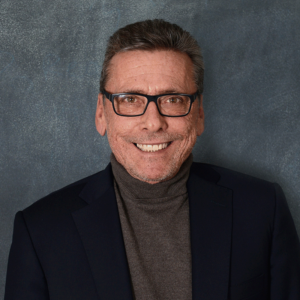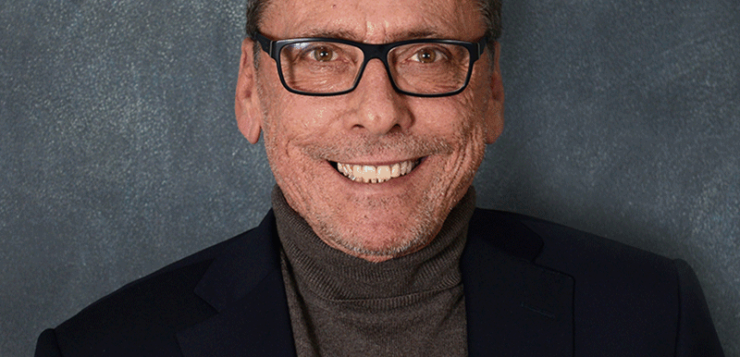
I spent my early career in the theater and eventually went on to own a restaurant in Hell’s Kitchen. A career advocating for the rights of patients had not occurred to me until two defining moments occurred in my life.
The first defining moment was at the age of 28 when I was told that I had eighteen months to live. The nightmare of the HIV/AIDS epidemic had begun, which would result in millions of young gay men being infected and dying of this insidious virus. We had no choice but to fight for our lives. It was then that I joined ACT UP and enrolled in clinical trials at the National Institutes of Health.
The second defining moment occurred at that very same time when I crossed paths with and became close friends with Dana Morosini. Dana then became Dana Reeve, the wife of Christopher Reeve, best known as Superman. In May 1995, she told me the unimaginable happened: Chris had suffered a horrific accident and was now a ventilated quadriplegic.
My story has been shaped by these two traumatic experiences, as they transformed my life and ignited my passion for patient advocacy. I realized that no matter who you are—whether you’re living on the margins of society, as I was as a gay man coming of age in the 1980s, or an internationally beloved Hollywood actor —there comes a point when each one of us is not just a person, but a patient. What we do, and how our health care providers, families, friends, and community mobilize to support us, is critical when we become a patient.
I was a young, gay, HIV-positive man discriminated against in every possible way by the government and many of my fellow citizens. My participation in medical research saved my life. As a participant in Dr. Anthony Fauci’s groundbreaking clinical trials at the NIH, I became one of the first people on the AIDS drug “cocktail” that is now responsible for saving my life and tens of thousands of others.
Ironically, because of my disease, I became a role model and a touchstone for Christopher, who died in 2004, and for Dana, who tragically died less than two years later from lung cancer. All three of us were given terrible prognoses, yet I’m the one who survived. What they taught me along with my LGBT brothers and sisters is that one person’s voice can make a difference. I then decided to focus my career on making sure that all patients are given hope.
The HIV virus is now essentially under control. But 700,000 mostly young Americans died to get to this point. Another 1.1 million still live with HIV. The LGBT community has made meteoric progress in our fight for our civil rights and health care equality, but the fight is far from over. The battle still rages on, and we must ensure we can continue to live healthy, productive lives.
What the LGBT community needs is for clinical research and health care leaders to fully bring us into the system as equal partners, rather than to continue to marginalize us. It is vital that we ensure that underserved members of society, like the LGBT community, live healthy and hopeful lives. Data analytics are making people rich, but now that same data has to make people healthy.
Fortunately, there is a solution. We now live in a world where treatments are being specifically tailored to individuals and there are currently more than 20 million LGBT Americans living today. Collecting and analyzing large comprehensive health data sets specific to LGBT Americans and our unique health care needs is imperative to our population’s future.
There are hopeful beginnings to this process. I’m honored to be a part of an amazing project run by the NIH called the All of Us Research Program. This program is building a participant community of a million or more Americans that is truly reflective of the diversity of our country to enable research into populations and on a scale that has not been possible before. This national research study has prioritized outreach to and engagement with marginalized, stigmatized and underrepresented communities. And yes, that includes the LGBT community. We are finally being asked to become participants, to help shape this program, and donate our health data.
Through partnerships with amazing organizations like CenterLink, The Association of Nurses in AIDS Care, the American Academy of HIV Medicine, HIV Medical Association and Stanford University School of Medicine, “All of Us” is deepening the trust needed in this community to ensure that we are represented in this effort. But there is still much more work to be done.
Let’s honor the hundreds of thousands who died because of AIDS. And, let’s honor ourselves by demanding that the U.S. healthcare system reflect us, and our needs, in the decisions made moving forward.
A born advocate, Michael Manganiello believes in the power of the patient to impact major changes in health policy – a power that is amplified when groups unite around a common agenda. Michael founded HCM Strategists, a firm that specializes in accessing major stakeholders in the health care community and bringing them together and find common ground to advance positive change.







Discussion1 Comment
All I can say is thank you. Thank you for dedicating your life’s work towards evolving LGBTQ+ rights and focusing your compassion on our shared humanity as patients.